Czinger announces worldwide reveal plans for revolutionary 21C hypercar
The brand Czinger has been publicly introduced for the first time in London, model 21C is the first in a series of exclusive performance cars. Unveiling underlined Czinger’s use of proprietary manufacturing technologies, in-house developed drivetrain and unique design elements that will guide production. Czinger 21C will be limited to 80 vehicles, each individual component of the car is computationally engineered and optimised for weight, efficiency and performance. With 1250 hp and dry weight under 1200 kg (of which the chassis is just 120 kg), the 21C features a true 1:1 power-to-weight ratio. Revolutionary engineering, never before seen on a production vehicle, combines structural systems plus cooling, fluid routing, and even exhaust sound management within the chassis structure. The 21C is an all-wheel drive vehicle with a strong hybrid powertrain. A mid-engine 2.88-litre, 80deg bank angle V8 twin 73mm turbo with 11,000rpm redline. 84 x 65 mm bore x stroke, 9.5:1 compression ratio, with four valves per cylinder, with full flex-fuel capability. Two high output advanced axial flux motors producing up to 370 Nm and 150 kW of peak torque and power, each powering a front wheel with torque vectoring. An ultra-light and compact, seven-speed automated sequential transmission gearbox, which has been developed and built to Czinger’s demanding specification, available in two configurations; full race dog gears for fastest possible shift times and a more street optimised synchromesh configuration for smoother everyday shifting. Total output of 1250 hp (1233 bhp), redlining at 11,000 rpm. Quarter mile time of 8.1 seconds and 0-62 mph (0-100 kph) in 1.9 seconds, 0 to 186 mph (300 kph) to 0 in 15 seconds and 0 to 248 mph (400 kph) to 0 in 29 seconds

Czinger 21C will be built for discovery and pleasure in cutting edge design and performance. Speaking at Czinger’s conference, CEO and Founder Kevin Czinger addressed attendees in person and to viewers on its live stream to present Czinger as a performance vehicles company, not just a hypercar manufacturer. Czinger confirmed that the 21C is the first in a series of exclusive performance vehicles and underlined that the company’s objective is to create one of the great, enduring brands of the 21st century.

Named so because it’s designed, built and manufactured for the 21st century, the new 21C hypercar uses Czinger’s revolutionary technology to engineer each component’s design, performance, and weight. The result is an organic whole whose performance is superior to just the sum of its parts, achieving a better than 1:1 power-to-weight ratio. Limited to just 80 vehicles, each 21C will be hand-fit and finished in Los Angeles, California.

In-house, revolutionary technology is used to custom design and optimize each 21C component to meet its function and form requirements. For example, the front upper control arm is hollow with a three-dimensional internal structure and uses proprietary, high-performance alloys specifically designed for the functionality of the component. As a result, its weight is a fraction of a traditionally tooled variant and it is significantly stronger, thereby reducing un-sprung mass and increasing performance.
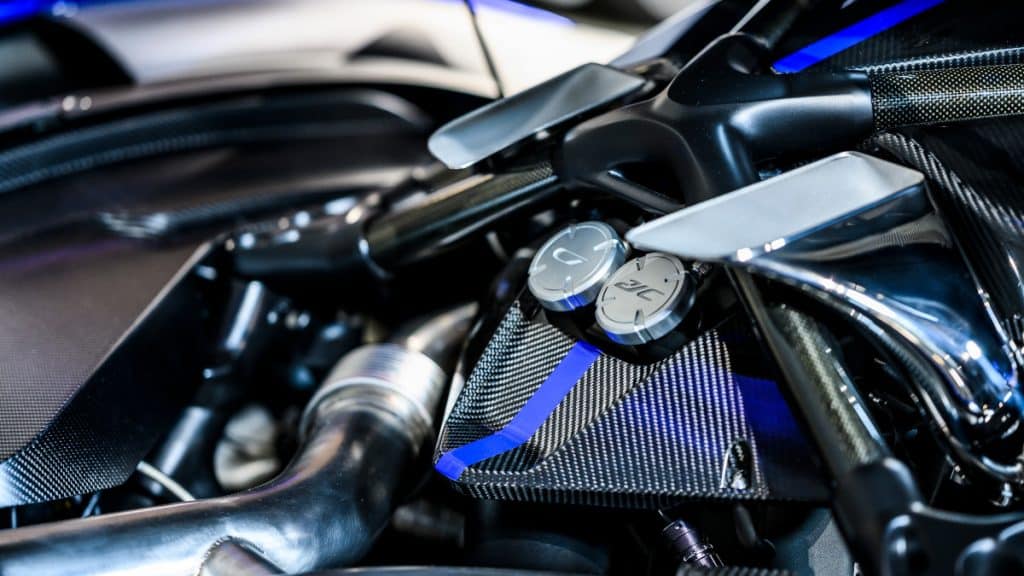
The 21C is highly customizable both from specification and individual personalization points of view. Two specifications, 21C and a lightweight track variant, were presented at the London, UK event. Both cars are powered by Czinger’s in-house developed drivetrain and boast Czinger’s iconic in-line seating architecture.
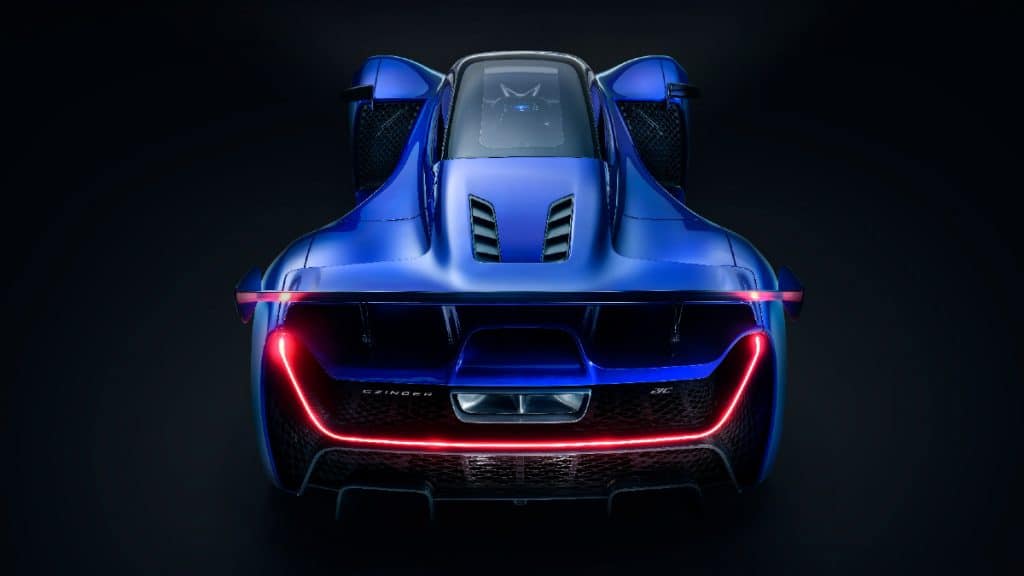
Named as the world’s most power-dense engine and located mid-vehicle, Czinger has released full specifications of its 2.88-liter, flat-plane crank, 80-degree bank angle V8. With twin 73mm turbos, and an 11,000 rpm redline, the impressive in-house developed engine has an 84 x 65mm bore x stroke, a 9.5:1 compression ratio, four valves per cylinder, and full flex-fuel capability. Combining this internal combustion engine with advanced axial flux motors producing up to 370 Nm and 150 kW of peak torque and power means the Czinger 21C’s total powertrain achieves a total output of 1250 hp (1233 bhp).
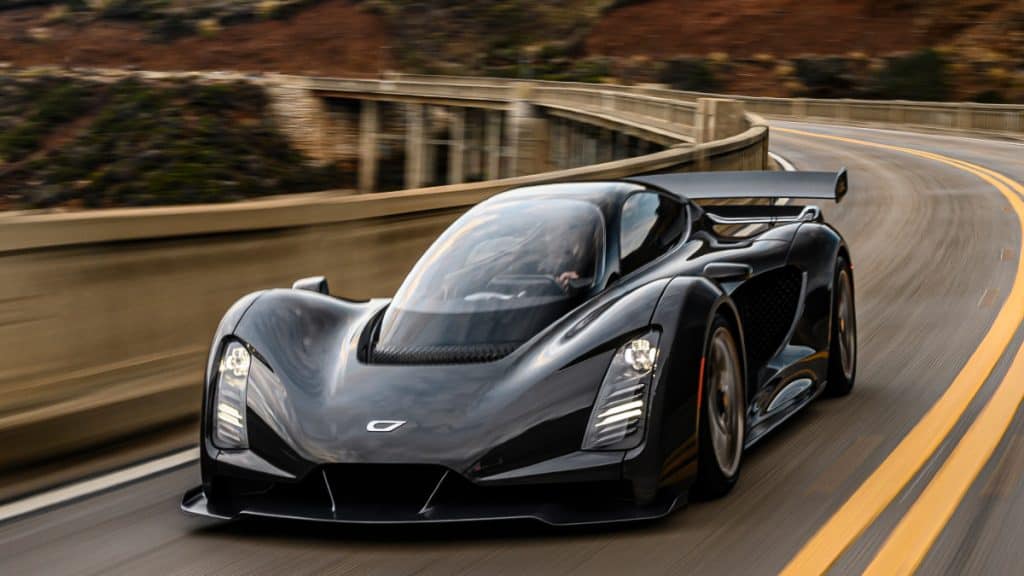
Due to the small vehicle architecture, Czinger developed advanced thermal management solutions to manage the 21C’s extreme power levels in its compact engine compartment. This included developing novel Thermal Syphons ™ that encapsulate the turbos and headers, pulling cool air from below the engine and siphoning hot air out of the decklid.
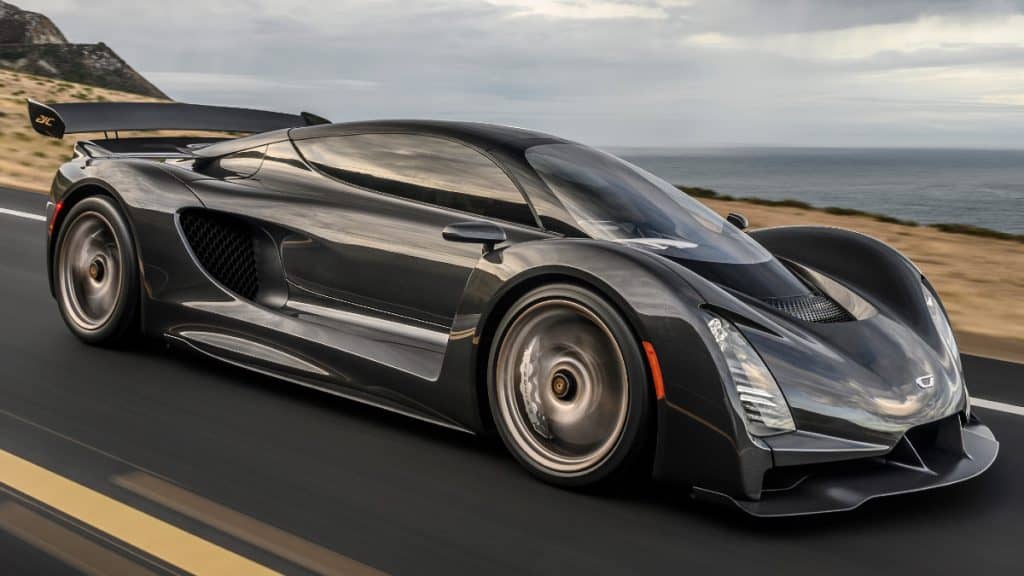
Combining this powertrain with a seven-speed automated sequential transmission gearbox, Czinger will offer its customers two specifications. The first is a full race dog gearbox for the fastest possible shift times, optimized for track use and the second is a more road-biased synchromesh configuration for smoother everyday shifting. From the engineering on the drivetrain to the in-line seating configuration and revolutionary chassis, the 21C is designed and created for ultimate performance and driving emotion.

The Czinger 21C has an iconic design, with jet-fighter seating, placing the driver in the middle of the vehicle, with a passenger behind, to create ultimate weight distribution and connection to the road. Capable of an 8.1-second quarter mile, 0-62 mph (0-100 kph) in 1.9 seconds, 0 to 186 mph (300 kph) to 0 in 15 seconds and 0 to 248 mph (400 kph) to 0 in 29 seconds. At 329 hp (324 bhp) per liter, Czinger’s priorities are clear – maximize power to weight and power efficiency. With 1250 hp and dry weight under 1200 kg, of which the chassis is just 120 kg, Czinger has blurred the line between traditional structural systems and safety efficiencies to maintain efficiencies and keep mass down, and in turn, boasts a true 1:1 power-to-weight ratio.
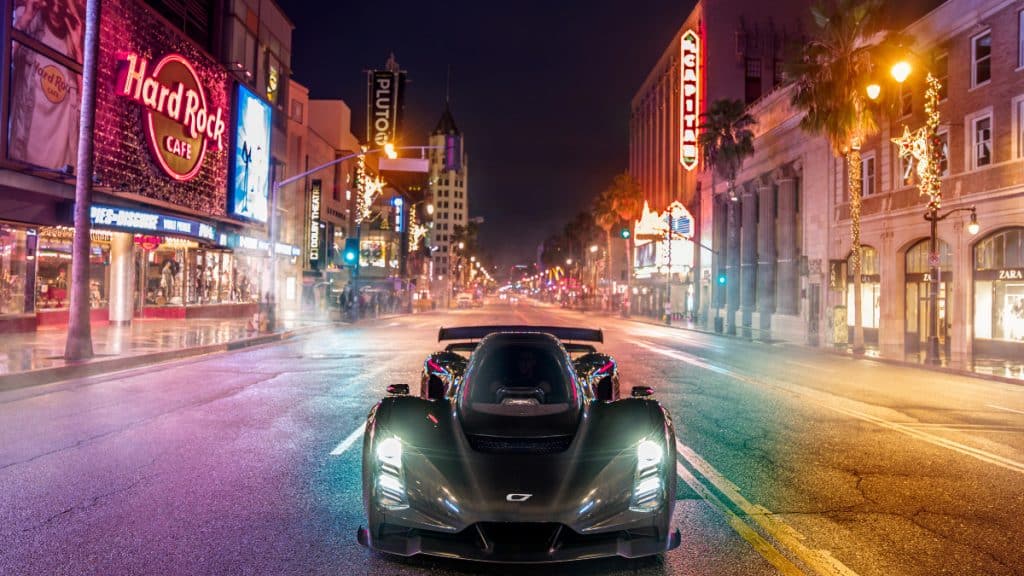
The Czinger chassis not only has traditional structural and safety systems as but also integrates functions like cooling, fluid routing, and even exhaust sound management, which has never before seen on a vehicle of this type. When you consider its multi-functionality, the extremely low overall chassis mass of 120 kg becomes even more impressive.

